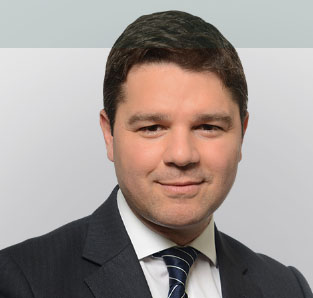Search results
CIRCA-DOSE in Context
Author(s):
Jason G Andrade
,
Atul Verma
,
Laurent Macle
,
et al
Added:
3 years ago
Article
Bruce Wilkoff
Job title: Cardiologist
Author
Magdi Saba
Research Area(s) / Expertise:
Author
Author(s):
Carina Blomström-Lundqvist
,
Tatjana S Potpara
,
Helena Malmborg
Added:
3 years ago
With the advent of successful surgical repairs and modern diagnostic techniques, an increasing number of patients with congenital heart disease survive to adulthood. Despite these improvements, the surgical corrective atrial incisions performed during childhood lead to subsequent myocardial scarring that have the inherent risk of harbouring substrates for macro-reentrant atrial tachycardias …
View more
Author(s):
Sanghamitra Mohanty
,
Andrea Natale
Added:
2 years ago
Author(s):
Hussam Ali
,
Pierpaolo Lupo
,
Riccardo Cappato
Added:
3 years ago
Numerous large clinical trials have demonstrated the benefit of implantable cardioverter-defibrillators (ICDs) to prevent sudden cardiac death (SCD) in selected populations.1,2 These results and advances in defibrillation therapies have led to an impressive expansion of ICD implants and indications in recent decades. Although initially focusing on secondary prevention, current ICD indications…
View more
Author(s):
Thorsten Lewalter
,
Giuseppe Boriani
Added:
3 years ago
The monitoring of atrial fibrillation (AF) can be performed using a great variety of strategies and tools. Strategies range from monitoring only symptomatic AF (e.g., post-catheter ablation with or without surface electrocardiogram [ECG] documentation) to continuously monitoring heart rhythm using implantable pacemakers, implantable cardioverter defibrillators (ICDs) or subcutaneous implantable…
View more
Author(s):
Domenico G Della Rocca
,
Sanghamitra Mohanty
,
Chintan Trivedi
,
et al
Added:
3 years ago
AF is the most common sustained arrhythmia, and carries an increased risk of cardiovascular and cerebrovascular complications. The latest estimates on the prevalence of AF portray an alarming scenario, with a steep increase in the number of people developing AF and prediction that the number affected will more than double in the next 40 years.1 Among the strategies to restore and maintain sinus…
View more
Author(s):
Ameeta Yaksh
,
Lisette JME van der Does
,
Eva AH Lanters
,
et al
Added:
3 years ago
Cardiac arrhythmias during pregnancy pose a serious threat to the health of both mother and foetus. Women with established tachyarrhythmias, congenital heart defects or channelopathies have the highest risk for development of arrhythmias.1,2 They also develop de novo or occur in women without apparent heart diseases. Tachyarrhythmias, including both supraventricular and ventricular tachycardias,…
View more
Author(s):
A John Camm
Added:
3 years ago
Atrial fibrillation (AF) is the most common sustained cardiac arrhythmia, occurring in 1–2 % of the general population and is increasingly prevalent in older people, occurring in about 10 % of over 80 year olds.1 AF is associated with a variety of cardiovascular conditions. The arrhythmia is associated with a five-fold rise in stroke risk and frequently coexists with heart failure, both leading…
View more














